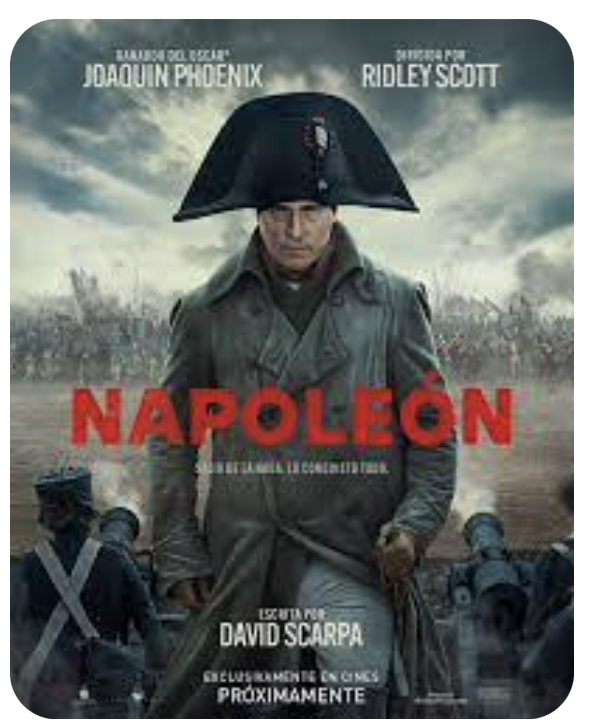Here: I just gave you three hours of your life
/he should have stayed dead; in fact, this movie does nothing to revive him
Anything for my readers: Yesterday, I sat through all three hours of Ridley Scott’s Napoleon so that you won’t have to. It was not only interminably boring, it was pointless, and I kept wondering why this movie was made. The film’s storyline centers on Napolean’s unrequited love affair with his unfaithful, infertile wife, Empress Josephine, with occasional snippets of battle scenes thrown in to remind viewers why they might have heard the name Napolean before, even if it provides no reason why they should have. The only redeeming feature of the film is that, according to press reports, it has offended the French; that’s very satisfying, naturally, ,but isn’t enough to justify enduring 157 minutes of drivel.
I’ve also read that some scholars are up in arms, so to speak, over Scott’s playing fast and loose with historical facts, but to me, that’s a quibble — it’s fiction, and writers of fiction should be allowed to shape a story as they see fit. But what really Gauls me and sums up the total inanity of this film occurs in the film’s final minutes, as the battle of Waterloo is wrapping up (I won’t spoil the suspense by disclosing who won). As the son of a man who served in one of this country’s last mounted cavalry units I may be oversensitive, but there is a huge difference between cavalry and Calvary, yet three times in one minute, Wellington and his top general discuss “sending in the calvary”. That may be an understandable error for the average modern-day English speaker, but did no one connected with the production of this film that so prominently features soldiers on horseback know the difference? Obviously not.
Dumb.
Here are two illustrations showing the difference.
First, cavalry:
And now, Calvary


